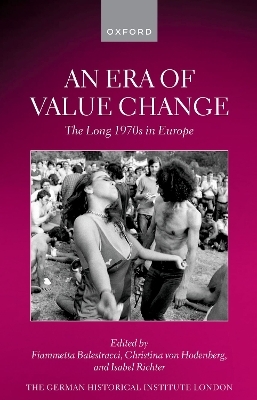
An Era of Value Change
Oxford University Press (Verlag)
978-0-19-892899-7 (ISBN)
The long 1970s have recently emerged as the start of a new epoch in which we still live. This volume asks whether the accelerated value change of these years can be explained with the rise of a new kind of post-rationalism, and presents case studies from across highly industrialized Europe. Theories of value change are tested historically in France, Italy, the two Germanies, the Soviet Union, Poland, Sweden, Spain, Greece, and Portugal. Approaching the era from long-term perspective, the chapters trace the rise of post-rational values in different fields such as social science debates, gender roles, sexuality, mass media, religiosity, humanitarianism, tourism, and nonconformist consumerism. The essays engage in controversy on whether new norms and practices that developed during the decade find their origin in post-rational values, a rise in affluence and education, or political changes.
The comparison in this volume extends both geographically, across the Iron Curtain and including 'smaller' countries, and chronologically, placing the 1970s as a key decade of transformation into a continuum spanning the long twentieth century. The authors show from different perspectives how the transformations of the long 1970s were linked to the legacy of the two world wars, as well as how they were related to the 1960s, which have often been presented as the primary decade of change. Instead of focusing on the dichotomy of materialism and post-materialism advocated by Ronald Inglehart's much-discussed theory of value change, the volume considers the 1970s move towards post-rational values against the backdrop of contemporary intellectual debates on rationalism in advanced industrialized societies.
Fiammetta Balestracci is a specialist in contemporary history with interests in the history of Germany, the history of the Italian Communist Party, and the history of sexuality. She obtained her Ph.D at the University of Milan and was recently awarded her habilitation in Italy. In 2017-19 she was awarded a Marie Sklodowska-Curie Individual Fellowship to focus on the transformation of female sexuality in Italy and Germany during the long 1970s. She has worked at many Italian and European universities and research institutes, including Queen Mary University of London and LMU Munich. Christina von Hodenberg is the Director of the German Historical Institute London (GHIL) and a Professor in European History at Queen Mary University of London. She has written five monographs in the fields of media history, social protest, and gender history. Her most recent book, a revisionist account of the late 1960s protest movements, will be published as The Other 1968: Social History of a West German Revolt with Oxford University Press in 2024. Isabel Richter is a Deputy Director at the German Historical Institute Washington DC where she has led the GHI Pacific Office at the University of California, Berkeley since autumn 2023. She studied modern history, German studies, and Spanish and received her Ph.D. in modern history from the TU Berlin and her habilitation from the Ruhr University Bochum. Her research interests include German cultural history (late eighteenth century to the present), National Socialism and its aftermath, resistance and countercultures in the twentieth century, the global 1960s, and the history of life stages (youth, ageing, end of life, and death).
| Erscheinungsdatum | 22.08.2024 |
|---|---|
| Reihe/Serie | Studies of the German Historical Institute, London |
| Verlagsort | Oxford |
| Sprache | englisch |
| Maße | 150 x 225 mm |
| Gewicht | 614 g |
| Themenwelt | Geschichte ► Allgemeine Geschichte ► Neuzeit (bis 1918) |
| Geschichte ► Allgemeine Geschichte ► Zeitgeschichte | |
| Geisteswissenschaften ► Geschichte ► Regional- / Ländergeschichte | |
| Geschichte ► Teilgebiete der Geschichte ► Kulturgeschichte | |
| ISBN-10 | 0-19-892899-8 / 0198928998 |
| ISBN-13 | 978-0-19-892899-7 / 9780198928997 |
| Zustand | Neuware |
| Haben Sie eine Frage zum Produkt? |
aus dem Bereich


